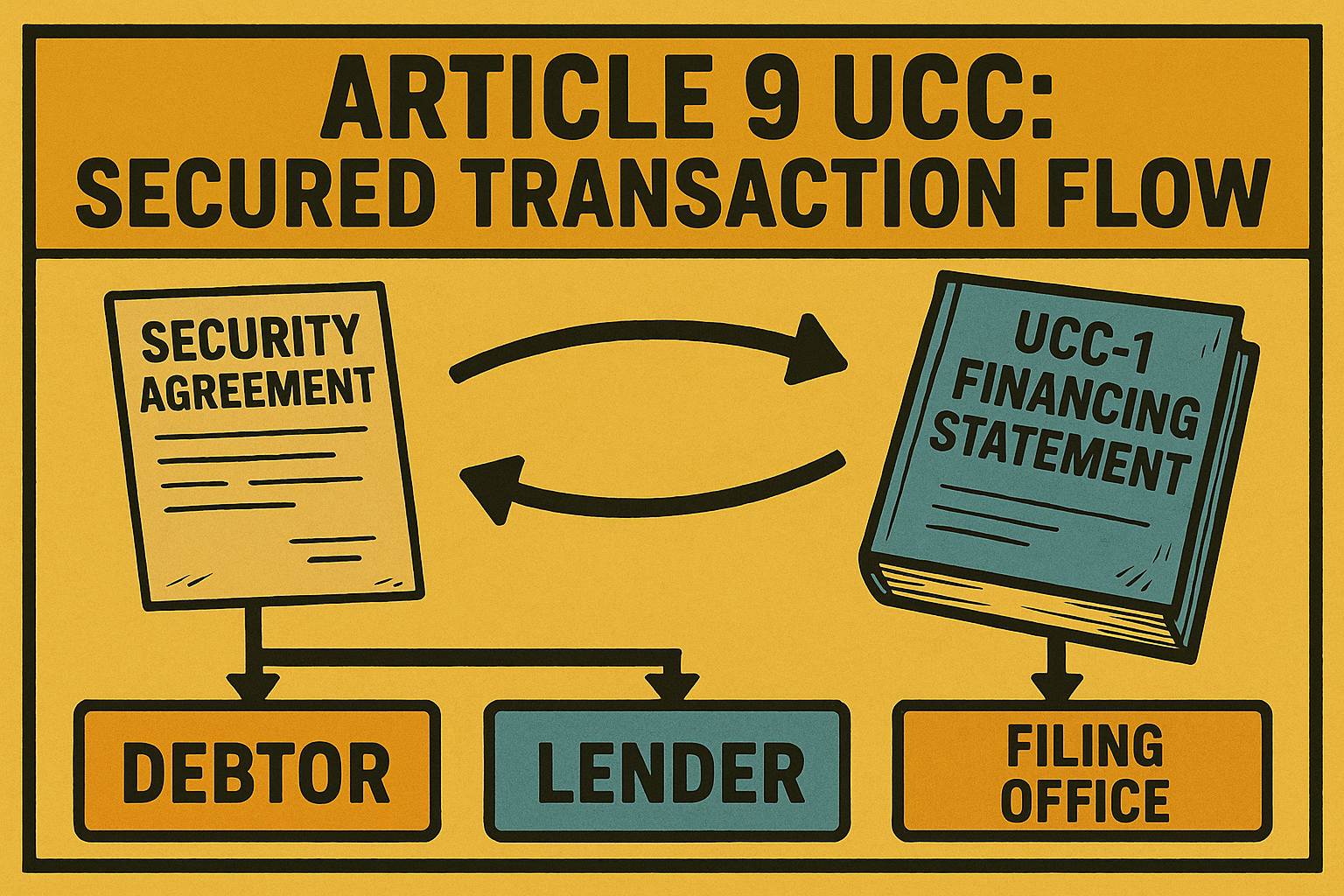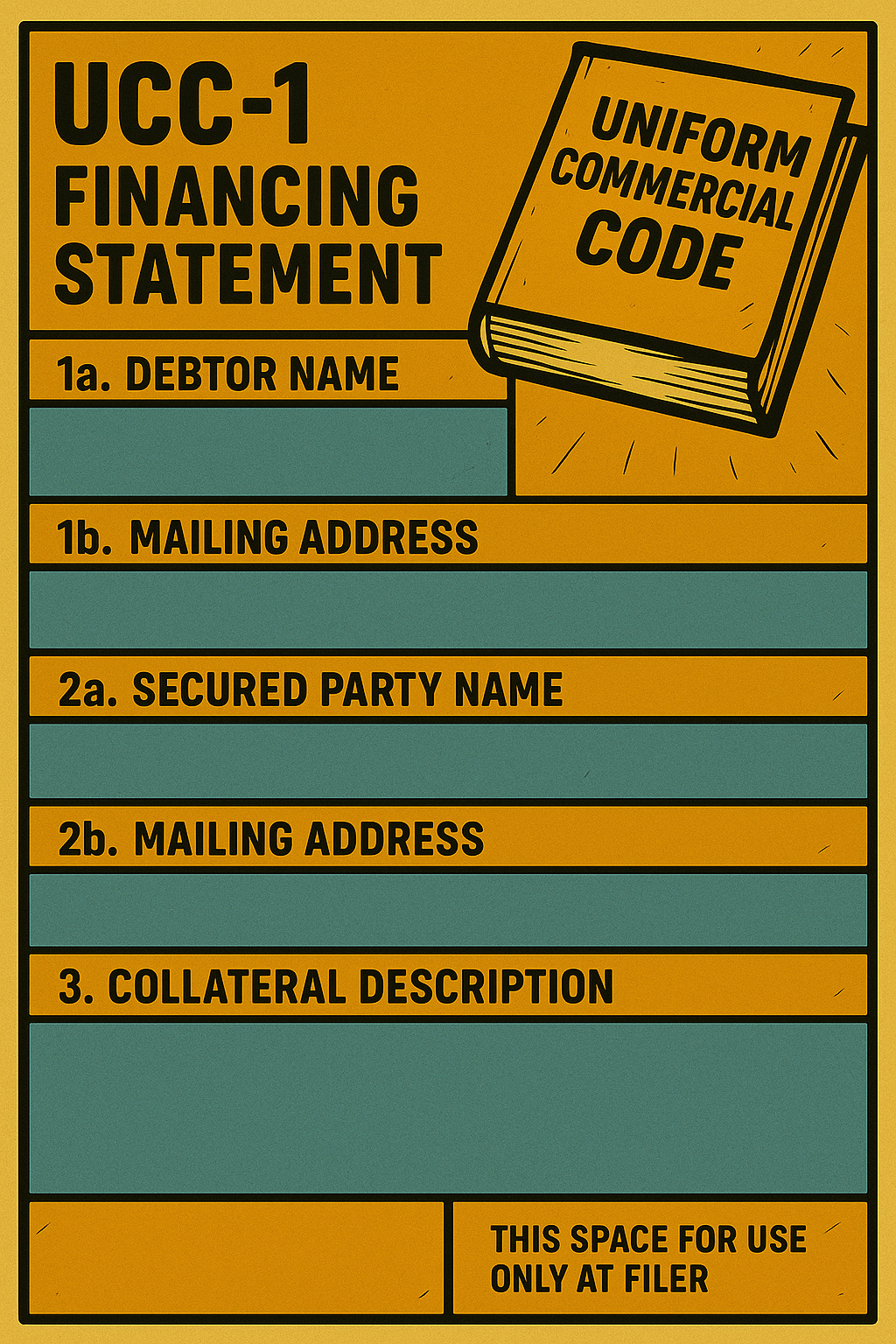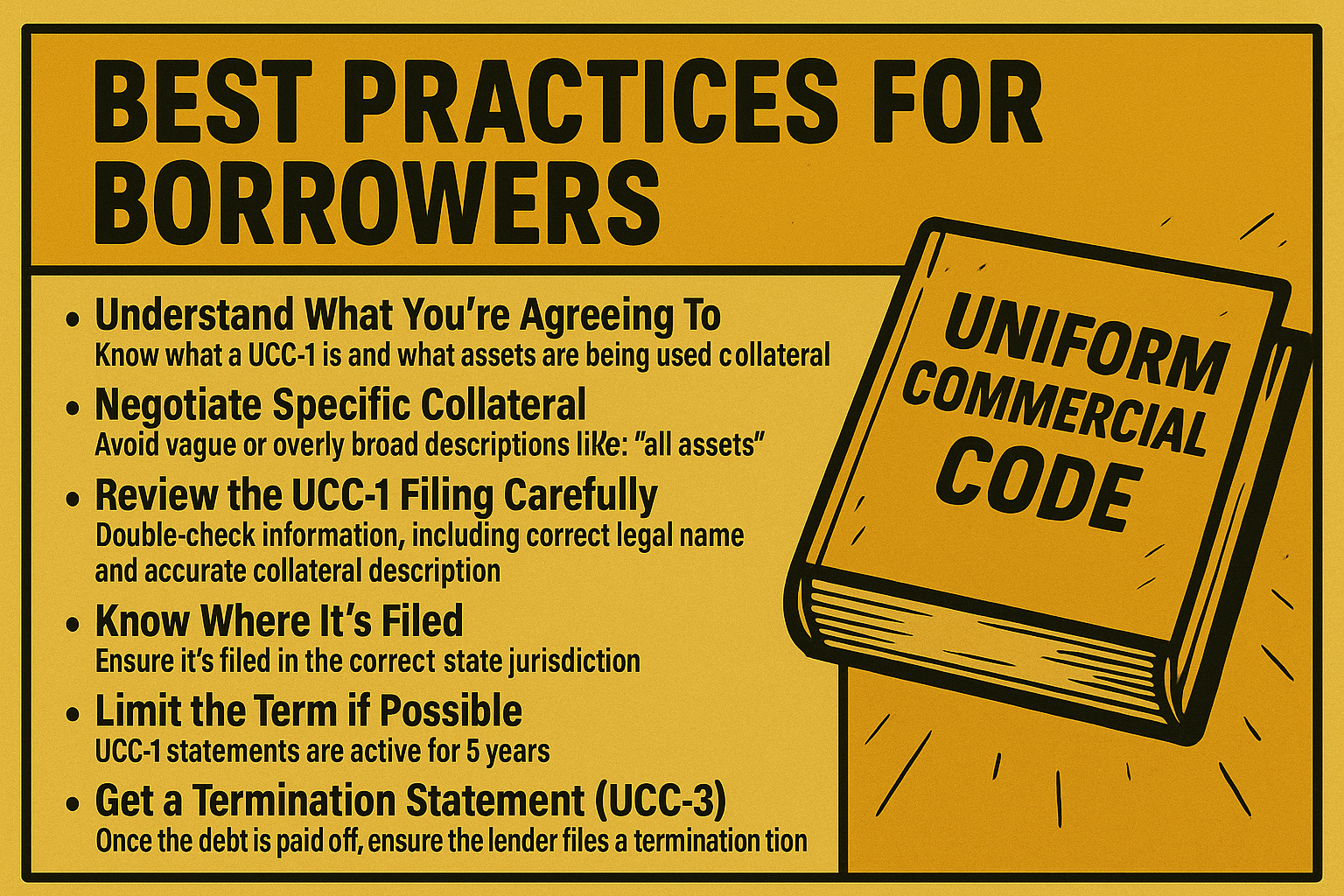UCC Article 9
“Article 9: The OG of Collateral Hustle.”

Understanding Article 9 of the UCC
(this is really, really important if you pledge assets/collateral)
- Article 9 of the Uniform Commercial Code (UCC) governs secured transactions—agreements in which a borrower offers personal property as collateral to secure a loan or obligation. Article 9 is critical for both lenders and borrowers because it outlines the rules for creating, perfecting, and enforcing security interests in movable property (see below for How Article 9 intersects with Real Estate).
- A security interest gives the lender legal rights to repossess and sell the collateral if the borrower defaults. Common examples include financing agreements for equipment, inventory, or accounts receivable. To make the security interest legally enforceable against third parties, lenders must “perfect” the interest, typically by filing a UCC-1 financing statement (see below) with the appropriate state agency.
- Article 9 also establishes rules for determining priority among competing creditors. If multiple parties claim an interest in the same collateral, the one with the earliest perfected interest usually has first rights…as the old saying goes, “First to File, First to Flex.”
- This framework protects creditors while giving debtors access to credit. It creates transparency and predictability in lending, which is essential in both small business and large commercial finance.
- In essence, Article 9 is the legal backbone of asset-based lending in the U.S., supporting a wide range of financial transactions and promoting economic activity by managing credit risks.
UCC-1 Financing Statement
“Public Notice, Private Power.”
- The lender typically files the completed UCC-1 financing statement with the Secretary of State’s office in the state where the debtor is located.
- For businesses, the UCC-1 is filed in the state where the company is legally registered/incorporated, not necessarily where it operates.
- Filing the UCC-1 makes the security interest public record, establishing the lender’s legal priority against other potential creditors. It’s a crucial step in “perfecting” the interest.


Article 9 and Real Estate
Article 9 of the UCC does not generally govern real estate itself,
but it does intersect with personal property connected to real estate in specific ways.
Here’s How It Breaks Down:
What Article 9 Does Not Cover:
- Ownership, transfer, or sale of real estate (like land or buildings).
- Mortgages and deeds of trust (these are governed by state real property law, not the UCC).
What Article 9 Does Cover (Related to Real Estate):
- Fixtures: Personal property that becomes attached to real estate (e.g., HVAC systems, industrial equipment bolted to the floor).
- As-extracted collateral: Rights to minerals, oil, gas, or timber once they’re removed from the land.
- Security interests in promissory notes or mortgages: If a lender takes a security interest in the note secured by real estate, the note is governed by Article 9, not the real estate itself.

Best Practices for Borrowers:
Understand What You’re Agreeing To
- Know what a UCC-1 is: It’s a public notice that a lender has a security interest in your collateral (e.g., equipment, inventory, receivables).
- Understand what assets are being used as collateral.
Negotiate Specific Collateral
- Avoid vague or overly broad descriptions like “all assets.”
- Request specific collateral language that only includes agreed-upon items.
Review the UCC-1 Filing Carefully
- Double-check that your legal name, address, and entity type are correct.
- Verify the secured party’s information and that the collateral section is accurate and not overly broad.
Know Where It’s Filed
- Ensure it is filed in the correct state jurisdiction (where your business is organized or located).
- Request a copy of the filed UCC-1 from the lender.
Limit the Term if Possible
- UCC-1 statements are active for 5 years. You can request limitations or agreement on renewal policies.
Get a Termination Statement (UCC-3)
- Once the debt is paid off, ensure the lender files a termination statement to remove the lien.
- Follow up and confirm the lien has been released from public records.
Work with Legal Counsel
- Have your attorney review the loan agreement and UCC-1 before signing.
- Especially important if dealing with high-value or long-term assets.

How to check Public Records (view UCC Filings)
The National Association of Secretaries of State (NASS) has a nifty
state-by-state utility one can employ to search UCC Filings.

